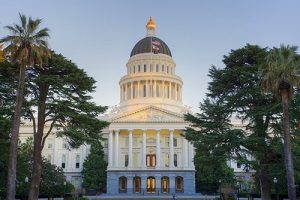Judiciary Committee Approves Amendments to California FCA

On Tuesday, the Judiciary Committee of the California State Assembly passed Assembly Bill 1270, which would make several important changes to the California False Claims Act, most notably eliminating the tax fraud loophole and clarifying materiality and damages standards. At the hearing, Martin Goyette, the head of the California Attorney General’s False Claims Unit, explained that the proposed changes would “strengthen our ability to get money back from people who cheat the state and . . . deter other people from doing that in the future.” The bill is sponsored by the California Attorney General’s Office and supported by the California District Attorneys Association.
Targeting Tax Fraud
Assembly Bill 1270 would extend the CFCA to tax frauds for the first time, following on New York’s extremely successful statute and echoing proposals in other jurisdictions, like D.C. The bill’s author, Assembly Member Mark Stone, explained that this new enforcement mechanism would help close California’s “tax gap”—the difference between the taxes owed and paid to the State. Stone said the gap could be as large as “$20 billion.”
According to the bill’s Policy Committee Analysis, it intentionally targets “the most egregious false claims of wealthy fraudsters.” Only individuals and business with annual income or sales over $500,000 would be liable, and only if the damages flowing from their fraud exceed $200,000. Goyette emphasized that the False Claims Unit is entirely self-funded through its recoveries and will remain so in pursuing tax frauds.
Clarifying Materiality and Damages
The bill also makes notable clarifying amendments to the CFCA’s materiality and damages language, as Constantine Cannon attorneys Leah Judge and Chris McLamb explained in a recent article for the Daily Journal. On materiality, Assembly Bill 1270 clarifies the appropriate standard in the wake of the U.S. Supreme Court’s interpretation of the federal FCA in Universal Health Services, Inc. v. United States ex rel. Escobar, 136 S. Ct. 1989 (2016). Since Escobar, defendants have increasingly attempted to push courts to dismiss cases where the government continued to pay claims despite knowledge of their falsity, which Escobar called “very strong evidence” of immateriality. Id. at 1995.
Assembly Bill 1270 makes clear that California law still governs the application of the CFCA and that Escobar did not change the CFCA materiality analysis established in San Francisco Unified School District ex rel. Contreras v. First Student, Inc., 168 Cal. Rptr. 3d 832 (Cal. Ct. App. 2014). Under the bill’s definition, “[m]ateriality is determined by the potential effect of the false record or statement when it is made, not on the actual effect of the false record or statement when it is discovered.” Assembly Bill 1270 § 1.
According to Goyette, this clarification targets “defendants who try to avoid liability because—even though they lied and tried to cheat the State—the State paid the claim despite knowing the claim was false.” Goyette explained that there are “many, many kinds of reasons why the government wouldn’t automatically cut off payment just because someone says the claim might be false.” For example, stopping payment could tip off the defendant to the government’s investigation or eliminate vital services to vulnerable populations. Goyette also noted that neither the government nor contractors should want “to put the government in the situation where, in order to preserve a false claim [case], they would have to immediately cut off payment.”
Finally, on the damages front, Assembly Bill 1270 also makes clear that the government can recover consequential damages under the CFCA, ensuring California taxpayers will be fully compensated for the harms occasioned by fraudsters.
Whistleblower Insider will continue to track the bill as it heads to the Appropriations Committee.
Read More:
- D.C. Council Testimony
- State and Local False Claims Acts
- Constantine Cannon’s Whistleblower Team
- I Think I Have a Whistleblower Case
- Submit a Confidential Whistleblower Claim
- Whistleblower FAQs
Tagged in: CC Lawyers, FCA State, Legislation and Regulation News,